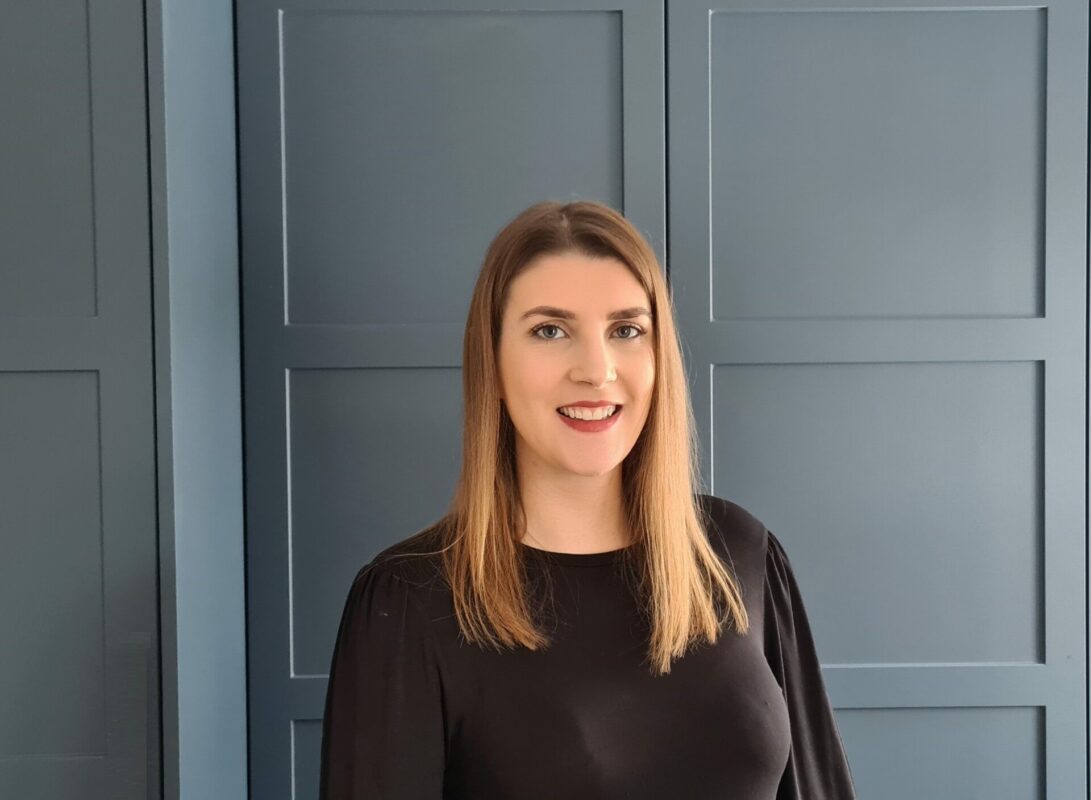Inspiration from a micro EpAO on their Ofqual recognition journey

Back in 2020, the Institute for Apprenticeships and Technical Education (the Institute, @IFAteched), announced the transfer of the EQA of end-point assessment to @Ofqual, or, for integrated higher and degree apprenticeships, the Office for Students (@officestudents).
The transition to Ofqual (the regulator of qualifications, examinations and assessments in England) means that end-point assessment organisations (EpAOs) must be recognised by Ofqual in order to remain on the ESFA register of end-point assessment organisations.
To be recognised by Ofqual, EpAOs must meet the Criteria for Recognition. Once recognised, EpAOs must operate under the Conditions of Recognition, and the EPA Qualification level Conditions, these are effectively the rules that EpAOs must be capable of meeting on an ongoing basis.
Within the announcement, the Institute recognised that there was concern that Ofqual regulation might place unnecessary burden on small or niche providers, or those who only wish to offer end-point assessment (page 4).
Given this concern, and my experiences of micro EpAOs struggling work out how to make the Criteria and Conditions fit, I thought that it would be helpful to hear from a micro EpAO that has successfully made it through the Ofqual recognition process.
Helen Shinner, Managing Director of 1st for EPA, kindly agreed to be interviewed, and I would like to thank Helen for her time and enthusiasm to share her experiences and hints and tips to help and inspire micro EpAOs, alongside passing on congratulations on achieving Ofqual recognition.
First of all, an introduction to 1st for EPA
1st for EPA is a private limited company which operates solely within the end-point assessment market place.
It became an EpAO in 2019, and is now approved to end-point assess 9 standards:
- Business Administrator L3
- Digital Marketer L3
- HR Consultant/Partner L5
- HR Support L3
- Junior Content Producer L3
- Marketing Assistant L3
- Marketing Executive L4
- Marketing Manager L6
- Public Relations & Communications Assistant L4
What inspired you to set up 1st for EPA?
I wanted to give providers and apprentices an EpAO that was completely transparent, I wanted to remove as many of the barriers to assessment as possible. Having worked with apprentices in the past I was very conscious of how many weren’t realising their full potential, not because they weren’t capable but because of nerves or uncertainty over the assessment process.
I have embedded that experience into what we do, by making sure that we tell apprentices exactly how they will be assessed, what’s expected of them and the type of questions they might be asked. We’re known for our friendly yet professional approach, and this supported huge growth in our second year – 1600% growth on year 1.
As we go into our third year, we’re a team of 34, we’re rated Excellent on Trustpilot, and our collaborative approach is working. We’ve had a few requests from employers and providers about adding additional standards to our offer, and we’ll hopefully be able to share more information in the new year.
I hear you have also recently won some awards?
Yes, we won Best New Business at the Tees Businesswomen Awards 2021. It was incredible to win an award in such a popular category when most people have never even heard of EPA!
At the same awards, we were a finalist for Small Business of the Year and Training & Apprenticeships Award – named alongside Teesside University and Middlesbrough College. To see our name next to such well respected organisations was incredible.
I have heard micro EpAOs say that Ofqual recognition is impossible, but you are proof it is possible, and I would love to find out more to help overcome perceptions and provide hints, tips and inspiration for micro EpAOs.
When did you begin your Ofqual journey, and when did you get approved?
We started our first application in September 2020 and gained approval in September 2021, so it took a full year. In that time, we had 3 applications. You definitely need patience, passion and commitment!
Each application took 2.5 – 3 months for Ofqual to review.
One thing we did learn from our first application was not to focus on the word count; instead of spending time creating beautifully crafted word limited answers, use the answer space as a tool to signpost to the attached evidence.
When you were making your submission, did you make use of resources or seek advice?
Yes, we read every piece of guidance and attended every webinar! Ofqual released its Recognition application: guidance for the Criteria when we were writing our second application, and we found this by far the most useful because it broke down exactly what Ofqual wanted to see from us. Before then, we thought we were describing how we met the Conditions.
The guidance for the Criteria made us realise there were aspects we hadn’t even considered yet. The best source of advice for us were the feedback meetings with Ofqual. After our initial application got rejected, there were bullet points in the letter saying where we hadn’t provided enough to meet the Conditions. These were concise and didn’t include any detail.
However, having the feedback meeting made a world of difference. The Ofqual team are so friendly. It’s clear they care about upholding the Conditions and are happy to support EpAOs. Speaking to the people who had assessed the application meant we could be told directly what hadn’t quite matched the Conditions, many of these we wouldn’t have been able to guess from the contents of the letter alone.
Are there any additional resources on specific topics that you think would be helpful to EpAOs?
I would have loved Ofqual to share examples of how to meet their Conditions. I know they do not tell EpAOs what they should do, and I agree with this approach, but examples of how Conditions could be met would have been useful.
What were the biggest challenges you faced?
We spent a lot of time asking, ‘what is enough?’ In our first application, what we considered was enough, turned out not to be enough for Ofqual, largely down to not enough detail on our processes and procedures. So in our second application we went all out, writing up every process, procedure and rationale for every part of the business and every assessment plan.
Whether we needed to provide that level of detail we don’t know, but it worked because we were told in the feedback meeting that we’d just about covered everything, with just a few minor points to clarify in our third application. It also meant that by having every process written up in detail it has made it easier to train new team members and gives us confidence that there is a single process to follow that is robust and meets the Conditions.
What is your view on a realistic timeframe to make an application, and to resubmit if you are rejected?
I would advise every EpAO to factor in at least one resubmission into their planning. As the saying goes, ‘You don’t know what you don’t know’ and that initial outcome letter and feedback meeting can be very valuable.
The timeframe can vary greatly, if you dedicate a solid amount of time to working on it, 2 months could be realistic for your first application. If you don’t have written policies and procedures in place already, that timescale can easily double.
My tip would be to make use of your team and ask everyone to contribute to the parts they know best. Set deadlines for a first draft and give yourself time to review and combine everything.
Many micro EpAOs find the governance requirements of Ofqual extremely hard to meet due to their size, how did you approach this?
This was definitely a challenge for us. I’m the sole owner of 1st for EPA and we’re entirely independent, which gives us the freedom to build our processes around what’s best for apprentices. Ofqual did question how one owner, with a financial interest, could make decisions free of conflict, and we overcame this question by introducing processes like extra checks, and decisions being made by multiple people.
Where no one within the organisation could be conflict free, we used consultants and included in our application exactly how we would vet those consultants, ensure they had the appropriate competency and manage their conflicts of interest.
As you can imagine, this was extremely time consuming, yet by having these official processes written up, we did see a vast improvement to the quality of our processes. To support the appeals process, we decided to link with organisations that offer this as an additional service, such as EPA Solutions and the Federation of Awarding Bodies.
How did you manage potential conflicts, where, for example, the same person may be responsible and accountable?
How did you manage the evidencing of capacity and capability to design/develop, deliver and award, when as a micro EpAO, some people will have multiple roles across the business?
We definitely have people carrying out multiple roles. We were completely open as to who does what. Where we identified a conflict of interest, we acknowledged it and laid out how we were going to manage it or change it. We were open in saying that the way we did some things in the past would no longer be possible, such as using internal staff to both develop materials and assess EPA.
We described how we would do things moving forward. This was backed up with written processes, updated policies, descriptions of who would be suitable for each role and how we would check their qualifications, competency, conflicts of interest and so on.
What was your experience of the Ofqual panel?
Honestly, it was fine. It was serious and thorough. When Ofqual invited us to the panel meeting, their letter included a list of bullet points showing what they wanted to discuss, and they stuck to this list. Some were small clarifications to ensure they’d interpreted our application correctly, and some were asking us to give them more detail, such as why we’d made certain decisions.
There were around 7 people on the call – the Chair, a legal representative and members from the teams who had reviewed each part of our application. After panel, they typed up minutes and sent them over for us to confirm it was an accurate record of the conversation. After we’d confirmed that, it started their two-week timescale to give us an outcome. All in all, it was around 3 weeks from the panel meeting to receiving our response.
Have there been any positives for your business as a result of going through the recognition process?
Yes, absolutely. The process made us consider our processes on a whole new scale. We were always committed to quality, but thinking through each condition made us tighten up processes and absolutely minimise the possibility of any potential issues or threats to validity.
The transition to Ofqual has made training providers and employers more aware of quality, and we’ve been asked a number of times if we have recognition, it’s definitely seen as a quality mark in the industry. We cannot use the Ofqual logo as we do not print certificates and it is not permitted to use to the logo for promotional use.
It would be great if there was some form of logo we could use as an EpAO as a mark of the quality bar we have achieved and to add strength to the image of EpAOs and apprenticeships.
Do you feel that Ofqual regulation of EpAOs will benefit the sector?
Yes, absolutely. We find that assessment plans leave a lot of room for interpretation, and if EpAOs deliver them differently it can mean there isn’t one standardised approach. Taking a wider view, the stricter quality controls will help strengthen the reputation of apprenticeships and create a solid foundation to grow them as a qualification.
However, I hope Ofqual (and IfATE) recognise the challenges that micro EpAOs are up against, and that any future requirements keep this in mind. Having a number of EpAOs of all shapes and sizes creates competition, and that drives improvement across the sector.
To hear about smaller EpAOs losing their foothold is really disheartening, when there’s so many benefits micro EpAOs offer.
What are your top 10 tips for EpAOs?
I’ve certainly got a lot of tips worth sharing:
A. Planning
- Set aside a LOT of time. Don’t underestimate it and don’t try to cut corners. You’ll probably be surprised at how much your organisation does, and you need to get this down as structured processes and policies;
- Read all of the guidance first. Whilst reading, measure your organisation against the Conditions. This will give you an idea of how much work you have to do;
- Be open to the idea of change. The aim isn’t to shoehorn your current practices into how well they meet the Conditions. It’s to use the Conditions as a starting point and identify ways to improve, then implement these;
- Be honest with yourself – if you don’t fully meet some of the Conditions, you won’t fool Ofqual into thinking you do;
- Have the right mindset. You need to be all-in. Doing just enough to meet each Condition won’t work. Aim for high quality.
B. Application
- You don’t have to have everything implemented at the time of application. As long as you have a clear idea of what you will do, how, and when, and a commitment to doing it, that is often enough. Ofqual are able to grant recognition with special Conditions such as delivering on what you’ve planned;
- We found it helped to write down the reasons behind our processes and the decisions we’d made, both generally and in relation to each assessment plan. Ofqual need to understand why you’ve made certain decisions and what effect they might have on validity;
- Before submitting your application, look at it with a critical eye – where might a third party see gaps?
C. After submission
- Always accept the feedback meeting, or any other opportunity to speak to Ofqual’s team. They are so helpful, they genuinely care about what they do and they are happy to support you through if you’re willing to implement change.
- Having said that, don’t underestimate the Ofqual team. They are really thorough and won’t take any smoke and mirrors. Be upfront and open with them. It’s not about pretending you’re perfect – it’s about identifying where you need to improve and actioning it.
Now that you are approved, do you have any thoughts, views or concerns around maintaining recognition?
I’m confident we’ve got the people, processes and policies in place to maintain recognition. Since gaining recognition we’ve already had two webinars with Ofqual, so the ongoing support is there.
We have heard people say that the annual statement of compliance is huge burden, but we are yet to see what is involved.
Hopefully Ofqual will release further guidance on what exactly this should contain (and what is not necessary).
Helen, thank you so much for your time and for your open and honest insight into your journey to Ofqual recognition.
Interview by Jacqui Molkenthin, Apprenticeship End-point Assessment Specialist Consultancy











Responses